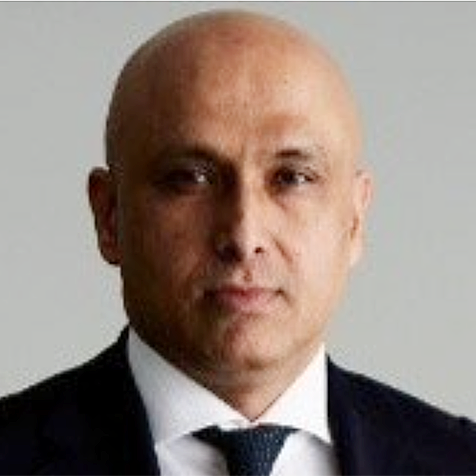For the theme song to the 1984 hit movie, Ghostbusters, the American musician Ray Parker Jr wrote: “If there’s something strange in your neighbourhood, who you gonna call?” With Brexit and Trump topping the list of unthinkables, 2016 has been an unusual year.
Not a surprise that for Chinese companies tapping the equity and bond markets in 2016, they have opted to call on friends and families to support their deals. The US$8.5 billion initial public offering (IPO) of Postal Savings Bank of China (PSBC), the largest IPO globally, saw over 70% of the total funds raised going to cornerstone investors with China Shipbuilding Industry Corp and Shanghai International Port Group accounting for over 50%.
Why a shipbuilder and a ports operator have been so convinced by the investment opportunity offered by PSBC to plunk down a combined US$4.2 billon is hard to fathom. The word on the street is that business is so slow for both in China that their cash is better off parked with the 22nd largest bank in the world.
The IPO was such an attraction that Shanghai International Port Group even took out a bridge loan to support its cornerstone investment into PSBC. The bridge facility, the banker who arranged the deal notes, is in line with the group’s plan to diversify away from its core port businesses and will enable it to tap into alternative strategically sound business areas.
And that has been a running theme throughout the year with Chinese issuers tapping Chinese investors who are more than happy to diversify their exposure away from the weakening renminbi. That is also one of the factors driving the record outbound China mergers and acquisitions activity throughout the year.
To be sure, China in the past 12 months has made it plain that it is and will grow to become an even bigger part of any bank’s revenue for the year – anywhere from a third or half for the most active banks. Whether they are advising on equity, debt or M&A; whether they are offering services in transaction banking or private banking; whether it is corporate or institutional business, banks are spending a greater share of time and resources working with a growing list of Chinese clients.
But the unusual approach in how Chinese deals are put together challenges the usual notion of what the best deal is. As Chinese deals tend to be large, picking the largest ones would be easy but may not be correct. It begs the question of what role a bank can play in a line-up of 24 banks participating in an IPO. The old measure of league table rankings has to be taken with some caution.
Nor is a classic bookbuild (ie not friends and families) for an IPO a guarantee of a winning deal as billionaire Meisong Lai, CEO of Chinese courier company ZTO Express, found to his dismay. As the biggest listing this year in the US, ZTO Express raised US$1.4 billion and paid the six underwriting banks and the legal counsels US$6.5 million. But the marquee deal, which was priced above the range at US$19.50, was down 15% on day one and 25% after a week. “It is just not good for the market,” laments a syndicate banker.
What went wrong? It is the hottest deal coming into the launch with the book multiple times covered from Day 1 and over 620 lines – many hedge funds wanted in. Morgan Stanley, which acted as the stabilization agent, is also one of the largest prime brokers servicing hedge funds. The firm, sources share with The Asset, had to allocate to as many of its hedge fund clients. “Morgan Stanley found it very difficult to blank these accounts,” sources continue. “But when you have accounts taking small allocations, what do you expect them to do? They all are going to flip. Once they start doing that, the IPO price will only go one way.”
For the past 18 years, The Asset Triple A Awards try to go beyond the rankings to choose deals that are transformational and select banks that provide the best advice and best execution. Often, this involved hours of probing speaking to the clients and their advisers. The result is today’s Triple A Country Awards for North Asia.
In China, Citi continues to maintain its position as a leading global bank making strides in both their investment banking and TTS (treasury and trade solutions) business, offering a full range of services to its clients. The bank was involved in key deals such as State Grid’s dual US dollar and Euro tranche bond and the first panda bond sovereign in China. It is the Triple A Best Bank, Global and Best Corporate and Institutional Bank.
Within the domestic banking space, Bank of Communications stood out among the competition having lowered the NPL (non-performing loan) ratio during a period of rising credit stress and demonstrating a commitment to enhance its operations overseas. It scoops this year’s Triple A Best Bank, Domestic.
Local powerhouses such as CICC has increased its involvement in key Chinese deals during the review period including the A-share listing of Shanghai’s Film Corporation and Qingdao Haier US$5.4 billion acquisition of General Electric’s appliances business just one of the many key outbound M&A China deals. It is this year's Triple A Best Corporate and Institutional Bank, Domestic for China and Triple A Best Equity House. Bank of America Merrill Lynch, which was also involved in advising Qingdao Haier, also acted for Tencent in its US$8.6 billion takeover of Supercell, the Finnish gaming company behind the Clash of Clans taking the title of Triple A Best M&A House, China.
The Hong Kong market likewise saw banks such as Hang Seng Bank and CCB International continue to consistently hold their own in a crowded marketplace. Hang Seng Bank retains its title of Triple A Best Bank, Domestic for the past 16 years.
CCB International, named Triple A Best Corporate and Institutional Bank, Domestic and Triple A Best Equity House, stands out for the sixth year in a row maintaining its momentum by leading a number of Hong Kong-related deals whether it is an IPO listing or a bond issuance. For the first time Citi clinches the Triple A Best Bank award in Hong Kong as a result of its persistence in being a well-rounded global bank and achieving better returns among its peers on a relative basis.
Away from China/Hong Kong, a number of international banks have stepped back either due to internal issues or being unable to stay the course in the face of competition and declining fees.
In Korea, Credit Suisse stands out in the M&A space due to its impressive list of deals. Over the review period, the bank was part of KAKAO US$1.6 billion acquisition of Loen. It is Korea’s Triple A Best M&A House. Overall, Citi was able to strive ahead in the market winning the Triple A Best Bank and Best Corporate and Institutional Bank in Korea by being involved in several financings that helped shaped the market. Citi for example was part of Hyundai Capital Services US$500 million green bond and KEIXIM’s US$2.5 billion bond offering.
In Japan, Bank of America Merrill Lynch was ahead of its international peers as the bank excelled particularly in the bonds department having been involved in the country’s first 30-year corporate offering when Central Japan Railway tapped the US dollar bond market. Moreover, the bank was part of Sumitomo Mitsui Banking Corporation’s own US$500 million green bond deal.
In the historically competitive Taiwanese market, E.Sun Bank stands head and shoulder above the rest backed by a robust infrastructure looking to enrich the banking experience of it’s customers via digital solutions as it retains the Triple A Best Bank, Domestic in Taiwan. Yuanta Securities retains its crown as the Triple A Best Corporate and Institutional Bank, Domestic, being a key player in the local bond space and backed by a solid brokerage arm.
To see the full list of North Asia House winners, please click here.
For the list of North Asia winning deals, please click here.









